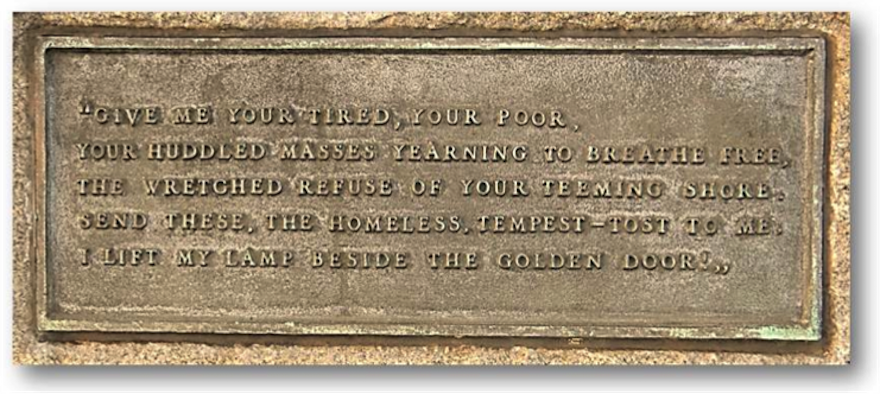“Give me your tired, your poor, your huddled masses yearning to breathe free.”
Those words are quoted from the Emma Lazarus poem, New Colossus, inscribed at the base of the Statue of Liberty. While the original intent is to describe all who are welcomed by Lady Liberty, they may also sound like an apt description of a near-burnout pastor.
- Tired? Check
- Poor? Check
- Yearning to breathe free? Check
How is it that pastors, ministering the gospel of Jesus Christ, experience such stress? Didn’t Jesus say, “My yoke is easy and my burden is light” (Matthew 11:30)?
Multitudes of statistical data point out the fact that pastoral burnout has become epidemic. Many reasons exist for such burnout:
- Many pastors feel isolated and fear sharing their problems with others.
- Some churches have unrealistic expectations for their pastor.
- The work of a pastor is never done.
- Many pastors believe they can never rest or take vacation for fear that someone will need them.
Perhaps pastors facing burnout feel like the prophet Elijah in I Kings 19. In the previous passage, He had just faced off with the prophets of Baal and watched God’s fire from Heaven consume the drenched sacrifices on Mount Carmel.
However, this action only served to infuriate Jezebel, leading her to declare a death sentence upon Elijah.
Elijah ran into hiding in the wilderness where he prayed under a broom tree, “It is enough; now, O LORD, take away my life, for I am no better than my fathers” (I Kings 19:4).
Sounds like burnout to me.
Maybe you don’t have a lady named Jezebel in your congregation, and perhaps you don’t frequently encounter any prophets of Baal, but I bet you know the feeling. It’s the same feeling you experience when a “concerned member” shares what “others are saying” about you. It’s the pain you feel when a leader betrays you. It’s the disappointment of seeing a strong family leave because of something outside your control. It’s the thoughts of failure that attack you when nobody seemed to respond to the sermon you labored on for days. It’s the exhaustion that comes from endless hospital and home visits.
There are a million different scenarios. But ultimately, the feelings they all emanate are expressed well by Elijah: “It enough; now.” Have you ever felt like enough is enough? My guess is that if you’ve been in ministry at least a year, you’ve felt this way at least once.
But Elijah doesn’t stop there. No, he goes on to ask God to take away his life. Maybe you’ve never taken it this far. Maybe. But the statistics on suicidal thoughts by pastors may startle you.
Elijah concludes his thought saying, “I am no better than my fathers.” In other words, he feels like a failure.
I don’t know about you, but the last word I would associate with Elijah is, “failure.” Especially after reading about the showdown with the prophets of Baal in the previous chapter. In the midst of depression and burnout, however, the big picture is difficult to see. Recent disappointments, failures, offenses, and fears cloud all reasonable judgment to the point that you can’t merely think you’re way out of the situation. Divine intervention is necessary. And that’s what happened next for Elijah.
The angel of the LORD (Jesus) appeared to Elijah and gave him food, which gave him enough strength to journey for 40 days to the mount of God at Horeb where he lodged in a cave. Forget Power Bars, right?
God spoke to Elijah in the cave. First, He asked him “What are you doing here, Elijah?” Elijah began to vent. He explained how the people of Israel had disappointed him by forsaking the covenant, throwing down altars, and killing prophets. He finally exclaims, “I, even I only, am left, and they seek my life, to take it away” (I Kings 19:10).
Next, God passed by the mount followed by a great wind, and earthquake and a great fire. But the Lord was not in the wind, nor the earthquake, nor the fire. Instead, God appeared in a still small voice.
So what was all the ruckus about? Why the wind, earthquake and fire? I’m not sure anyone can say with certainty, but I wonder if God just wanted to remind Elijah of His power -even though Elijah had seen it on display before (one chapter ago to be exact).
Maybe like Elijah, you see God’s power on display every week in your church without even recognizing it. Burnout has a way of blinding our eyes like that.
Nonetheless, I think God’s words in the still small voice are very interesting. He doesn’t share an inspirational thought or motivational speech. Instead, God simply tells Elijah what to do and where to go next.
While that may sound anticlimactic to the story, I think it was very powerful for Elijah. You see, in that moment, God was communicating to his prophet, “I still have work for you to do. Your ministry matters.” For many of us, those are the very words we most need to hear in the midst of burnout.
So, here are a few suggestions if you are facing pastoral burnout today:
1) Be willing to share your heart with the Lord. Come boldly before His throne through Christ. God spoke to Elijah after Elijah was willing to open up.
2) If you can find a trusted biblical counselor, consider spending time sharing your feeling with them. Iron sharpens iron.
3) Take a break and get away. Elijah took a 40 day journey to get to Horeb. When way the last time you had a vacation?
4) Feed on God’s Word. Remember the food the Angel of the LORD gave to Elijah? Feed on the Bread of Life!
5) Pour into a replacement. The last instruction God gave Elijah was to begin training Elisha to replace him. Whether you are near retirement or far from it, raising up new leaders in your church is not only Scriptural and beneficial –it is a great blessing that can help treat burnout!
For all who are tired, poor, and yearning to breathe free –remember, real liberty is found in Christ. And make no mistake about it –your ministry matters to him!









